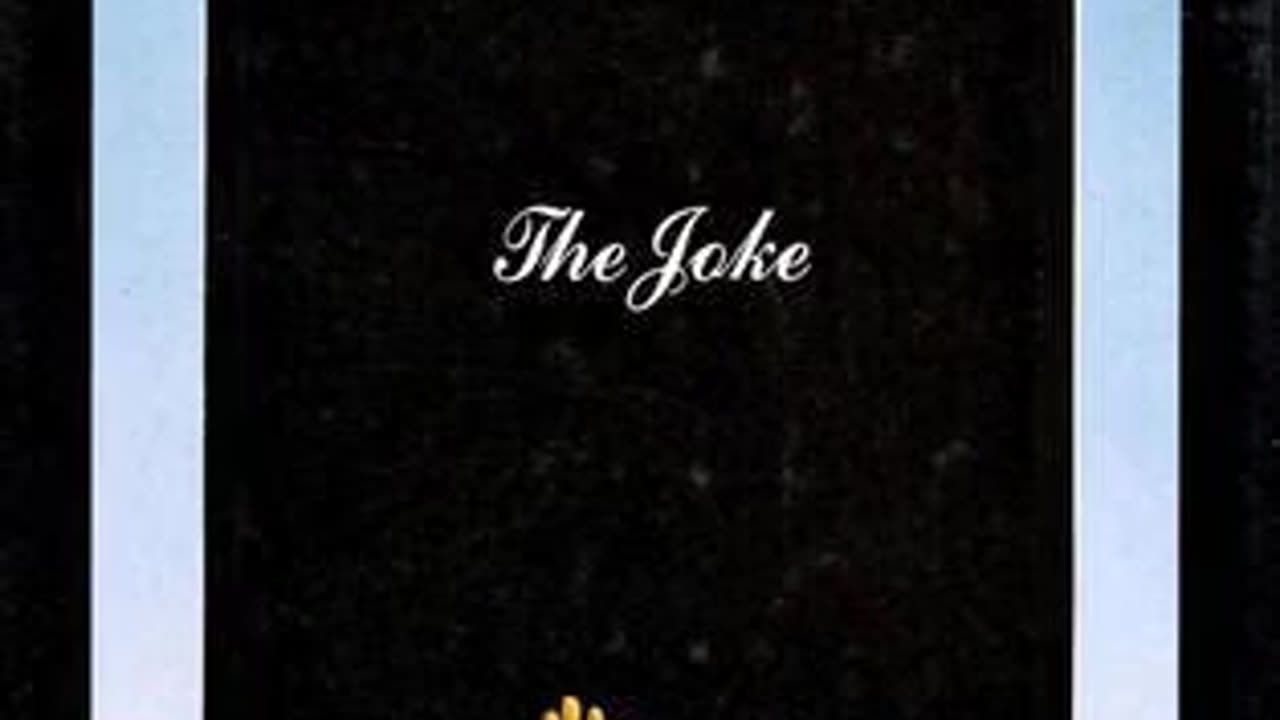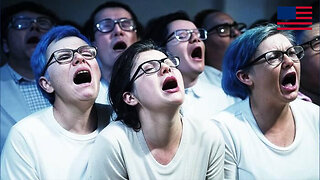Premium Only Content

The Joke by Milan Kundera | Summary and Critique
Buy Here: https://amzn.to/3JHX3B4
"""The Joke"" is a novel written by Milan Kundera and published in 1967. Set in Czechoslovakia during the 1950s, it tells the story of Ludvik Jahn, a young university student whose life takes a dramatic turn after he sends a sarcastic postcard to his girlfriend, Marketa. The postcard carries a joke about the Communist Party, and as a result, Ludvik is expelled from the party and faces various consequences that impact his personal and romantic life.
The novel explores themes of individual freedom, political oppression, and the complexities of human relationships. It delves into the disillusionment experienced by Ludvik and his generation, as they navigate the repressive regime and grapple with the loss of personal liberties.
Ludvik's joke, which was meant to be a harmless act of rebellion, backfires and triggers a series of events that lead to his social isolation, a failed marriage, and a deep sense of alienation. Through Ludvik's story, Kundera highlights the power dynamics and surveillance mechanisms of the Communist regime, as well as the destructive impact it has on personal relationships and the individual psyche.
Critique of ""The Joke"" includes the following points:
1. Political Allegory: Some critics argue that ""The Joke"" is not simply a story about Ludvik's personal life but also functions as a political allegory. They suggest that the characters and events in the novel represent broader societal and political dynamics under Communist rule. However, some readers may find the allegorical aspects of the novel overly simplistic or heavy-handed.
2. Narrative Structure: Kundera employs a non-linear narrative structure, shifting between different characters' perspectives and incorporating flashbacks and digressions. While this style adds depth to the novel and offers multiple viewpoints, it can be disorienting for some readers, making the story feel fragmented or disjointed.
3. Treatment of Female Characters: Critics have raised concerns about Kundera's portrayal of female characters in the novel. Some argue that the female characters, such as Marketa and Helena, are often depicted as objects of male desire and are defined primarily by their relationships with men. This representation may reinforce gender stereotypes and limit the agency of female characters.
4. Philosophical Themes: ""The Joke"" incorporates philosophical themes that Kundera is known for, such as the nature of personal identity, the role of memory, and the complexities of human existence. While these philosophical explorations add depth to the novel, some readers may find them overly abstract or tangential to the main narrative.
5. Impact of Translation: As with any translated work, there may be challenges in capturing the nuances and cultural context of the original text. Readers should be aware that their experience of ""The Joke"" may be influenced by the quality of the translation.
Despite these critiques, ""The Joke"" is considered a significant work in Kundera's oeuvre, showcasing his exploration of political and personal themes. It provides a poignant portrayal of life under a repressive regime and raises questions about individual freedom, the power of humor, and the complexities of human relationships."
-
 28:30
28:30
Standpoint with Gabe Groisman
19 hours agoBiden FAILED On Immigration With Sarah Sanders
8.11K1 -
 2:15:29
2:15:29
The Criminal Connection Podcast
9 hours agoMATT FIDDES: Michael Jackson Death EXPOSED! Cancel Culture, Uri's Spoons & Martial Arts MILLIONS!
181 -
![[Ep 606] Tyranny & Obstruction | FEMA: Illegals Over Citizens | Guest: Kelly Schwartz [2 Mikes Live]](https://1a-1791.com/video/fwe2/2a/s8/1/z/W/W/L/zWWLx.0kob-small-Ep-606-Tyranny-and-Obstruct.jpg) UPCOMING
UPCOMING
The Nunn Report - w/ Dan Nunn
55 minutes ago[Ep 606] Tyranny & Obstruction | FEMA: Illegals Over Citizens | Guest: Kelly Schwartz [2 Mikes Live]
243 -
 1:05:32
1:05:32
Russell Brand
5 hours agoSuper Bowl goes MAGA: Cheers, Boos & Media Hysteria – SF535
126K61 -
 2:07:18
2:07:18
The Dilley Show
4 hours ago $17.74 earnedFEMA Firings, Trump's Warning to Hamas and More! w/Author Brenden Dilley 02/11/2025
60.6K18 -
 1:57:44
1:57:44
The Charlie Kirk Show
3 hours agoThe Left's Mental Breakdown + Whistleblowing at USAID | Dr. Moyar, Sen. Paul, Turner | 2.11.2025
152K41 -
 36:24
36:24
ArturRehi
11 hours agoThe Real Russian History No One Talks About
26K3 -
 1:17:57
1:17:57
TheAlecLaceShow
5 hours agoGuests: Matt & Mercedes Schlapp, Jesse Kelly, AJ Rice | Trump Threatens Hamas | The Alec Lace Show
20.9K2 -
 2:55:28
2:55:28
The Dana Show with Dana Loesch
3 hours agoJUDGE BLOCKS DOGE ACCESS AT TREASURY | The Dana Show LIVE On Rumble!
57.9K5 -
 33:32
33:32
Grant Stinchfield
4 hours ago $3.35 earnedBig Pharma's Phony MAHA Commercial to Hook Out of Shape Americans
42.6K2